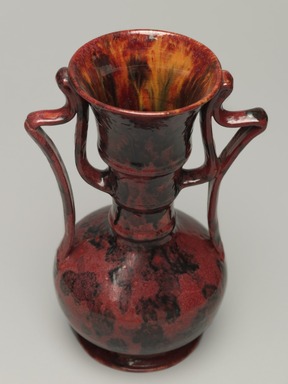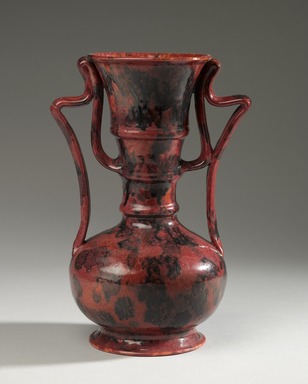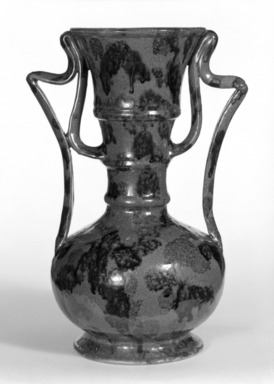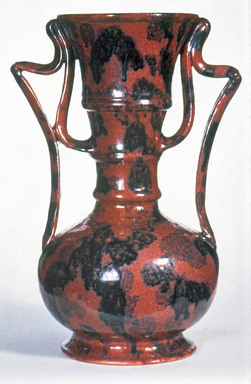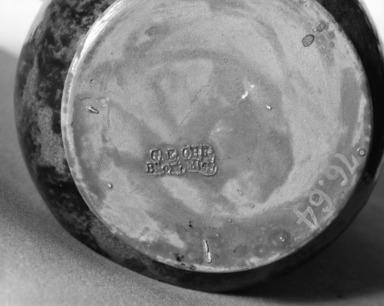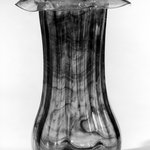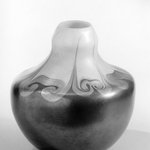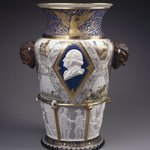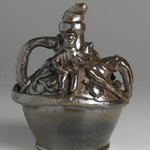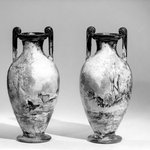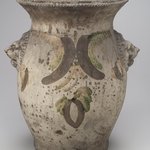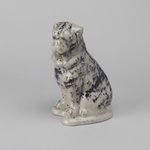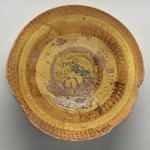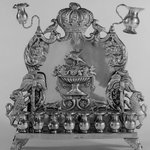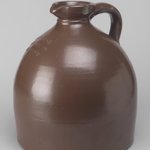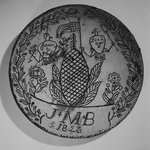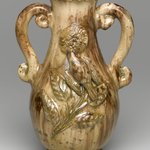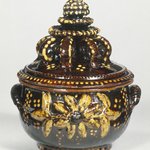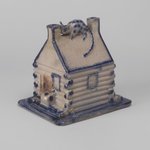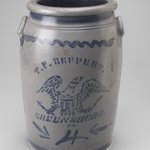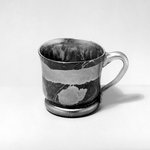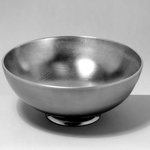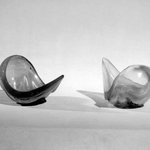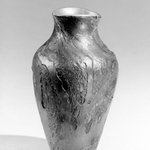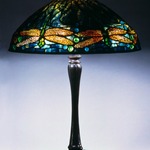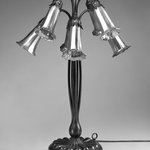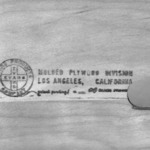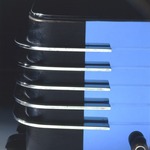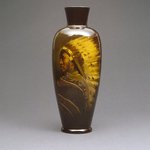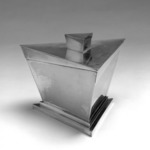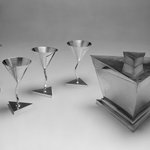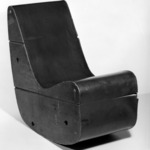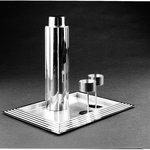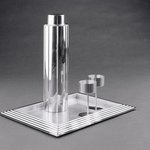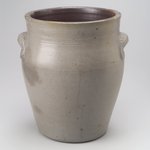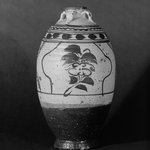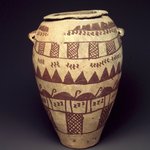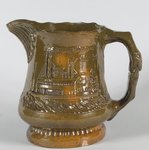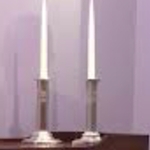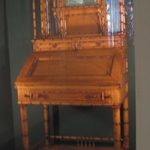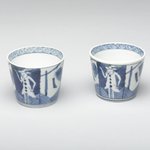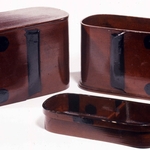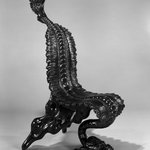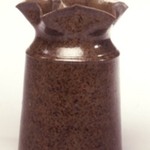Vase
Decorative Arts and Design
On View: Decorative Art, 20th-Century Decorative Arts, 4th Floor
Ceramics was perhaps the most widespread expression of the Arts and Crafts movement. The unique handcrafted vessels by George Ohr certainly are among the most idiosyncratic. Ohr threw the clay, which he hauled himself from local riverbeds, into thin-walled vessels. He then used his hands to squeeze, fold, and twist the walls to create abstracted sculptural forms. Ohr's deconstructed vessels integrated ornament and form. Stylistically, however, his vessels may seem at odds with the Arts and Crafts commitment to plain forms that were "honest" to their purpose.
MEDIUM
Earthenware
DATES
ca. 1900
MARKINGS
Impressed on bottom in block letters: "G.E.OHR/Biloxi, Miss."
SIGNATURE
no signature
INSCRIPTIONS
no inscription
ACCESSION NUMBER
76.64
CREDIT LINE
H. Randolph Lever Fund
CATALOGUE DESCRIPTION
Vase, double-handled, red and black glaze with orange on interior. Flat circular base, lower spherical body, and slender neck, flaring to horn shape top. Three rings around neck. Symmetrical, irregular strap handles, each beginning at middle of neck, then curving upward and attached at rim, then doubling back on itself and terminating on shoulder of lower spherical body.
Condition: Excellent. Slight firing separation in right handle.
CAPTION
George E. Ohr (American, 1857–1918). Vase, ca. 1900. Earthenware, H: 9 1/4 in. (23.5 cm). Brooklyn Museum, H. Randolph Lever Fund, 76.64. Creative Commons-BY (Photo: Brooklyn Museum, 76.64_detail_PS6.jpg)
IMAGE
detail, 76.64_detail_PS6.jpg. Brooklyn Museum photograph, 2012
"CUR" at the beginning of an image file name means that the image was created by a curatorial staff member. These study images may be digital point-and-shoot photographs, when we don\'t yet have high-quality studio photography, or they may be scans of older negatives, slides, or photographic prints, providing historical documentation of the object.
RIGHTS STATEMENT
Creative Commons-BY
You may download and use Brooklyn Museum images of this three-dimensional work in accordance with a
Creative Commons license. Fair use, as understood under the United States Copyright Act, may also apply.
Please include caption information from this page and credit the Brooklyn Museum. If you need a high resolution file, please fill out our online
application form (charges apply).
For further information about copyright, we recommend resources at the
United States Library of Congress,
Cornell University,
Copyright and Cultural Institutions: Guidelines for U.S. Libraries, Archives, and Museums, and
Copyright Watch.
For more information about the Museum's rights project, including how rights types are assigned, please see our
blog posts on copyright.
If you have any information regarding this work and rights to it, please contact
copyright@brooklynmuseum.org.
RECORD COMPLETENESS
Not every record you will find here is complete. More information is available for some works than for others, and some entries have been updated more recently. Records are frequently reviewed and revised, and
we welcome any additional information you might have.
